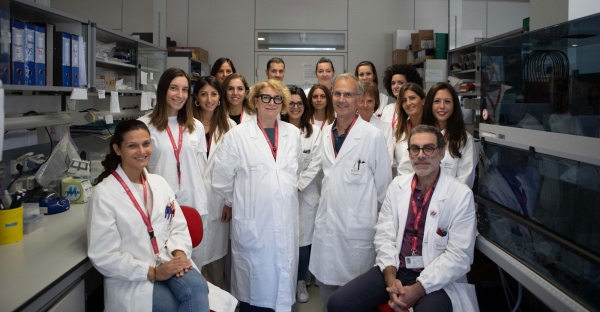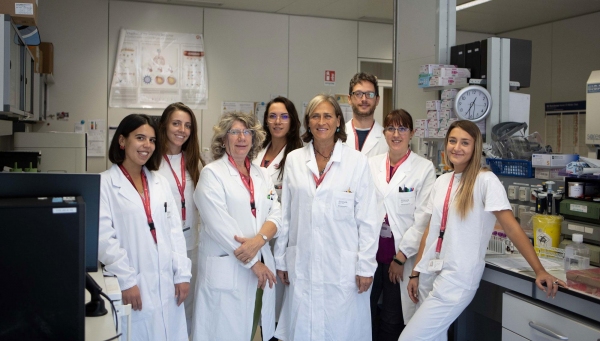Integrated approach to the study of hematological diseases and the immune system /
Hematology
Head
Unit
Blood cancers (acute and chronic leukemias, lymphomas, multiple myeloma, and chronic myeloproliferative syndromes)
The aim of the research activity is to investigate the molecular mechanisms of the various diseases treated in order to define in detail the biological basis in correlation with the different clinical features, so as to improve the management of patients in terms of diagnosis, predict the evolution of the disease and personalize therapy. The main areas of investigation include:
- The study of multiple myeloma genomics: in asymptomatic forms, to predict the risk of progression. In active forms, to predict response to therapy and risk of recurrence.
- The single-cell study of asymptomatic and active multiple myeloma, to identify the possible presence of a few cells that could prospectively determine progression/recurrence
- The study of acute myeloid leukemias treated with innovative therapies based on venetoclax and demethylating agents. Through both genomic and single cell analysis, we study DNA abnormalities and cell populations that could determine response or refractoriness to therapy.
Study on the pathophysiology of congenital hemolytic anemias
The main areas of research include:
(a) study of the pathophysiological mechanisms (biochemical, immunological and molecular) of congenital hemolytic anemias from membrane and erythrocyte enzyme defect, and paroxysmal nocturnal hemoglobinuria;
(b) analysis of new genes in rare congenital hemolytic anemias (stomatocytosis, "unclassified" membrane defects, rare erythroenzymopathies) with validation of the possible diagnostic role of new mutations. Study of genotype-phenotype correlation and genetic modulation of clinical expression. Development of tools for functional confirmation of variants identified in NGS;
(c) Implementation of new diagnostic tools for autoimmune hemolytic anemias that are difficult to diagnose and negative in commonly used tests; study of immunological basis and cytokine regulation of anti-erythrocytic autoimmunity;
(d) identification of the autoimmune phenomena of myelodysplastic syndromes and in bone marrow aplasia/paroxysmal nocturnal hemoglobinuria, with special reference to autoimmunity toward bone marrow precursors and the apoptotic mechanisms involved.
National and international clinical trials are also active.
- Chromium Controller, 10x Genomics
- Ekacytometer Laser Optical Rotational Red Cell Analyser
- Sanger SeqStudio Sequencer
- University of Turin
- University of Bologna
- University of Bari
- Vita e Salute San Raffaele University, Milan, Italy
- Erasmus MC, Univeristy of Rotterdam, Netherlands
- Sylvester Cancer Center, University of Miami, FL, USA
- European Reference Network EuroBloodNet (Rare Hematological Disorders)
- National networks for hematologic diseases Gimema, Aieop, SITE
- Vall d'Hebron Research Institute - University Hospital Vall d'Hebrón, Barcelona, Spain)
- University of Saarlandes - Department of Theoretical Medicine and Biosciences - Saarland - Germany
1 full professor, 1 associate professor, 20 hematologists, 2 biologists, 3 study coordinators, 7 health researchers, 3 research fellow biologists, 1 laboratory technician
—
Other activities in this Research Line
Integrated approach to the study of hematological diseases and the immune system
Dermatology
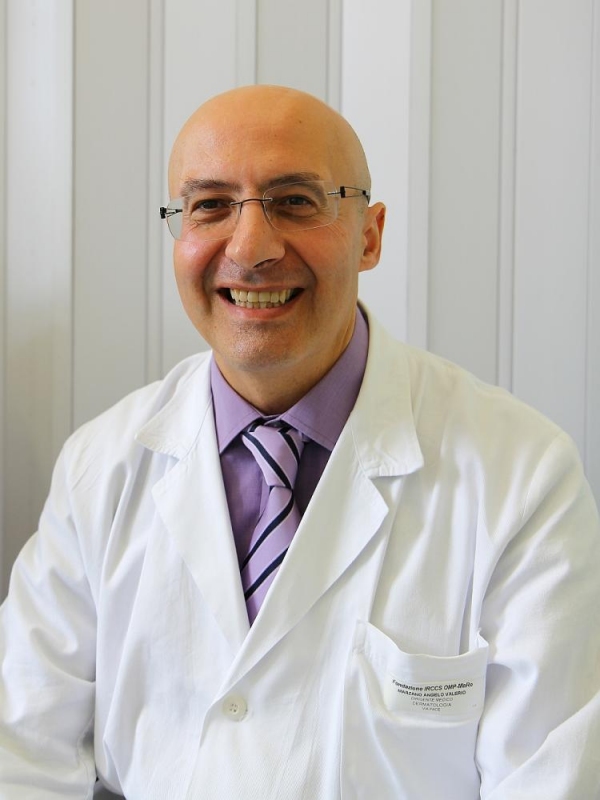
Angelo Valerio Marzano
Infectious Diseases

Alessandra Bandera
Medicine - Hemostasis and Thrombosis
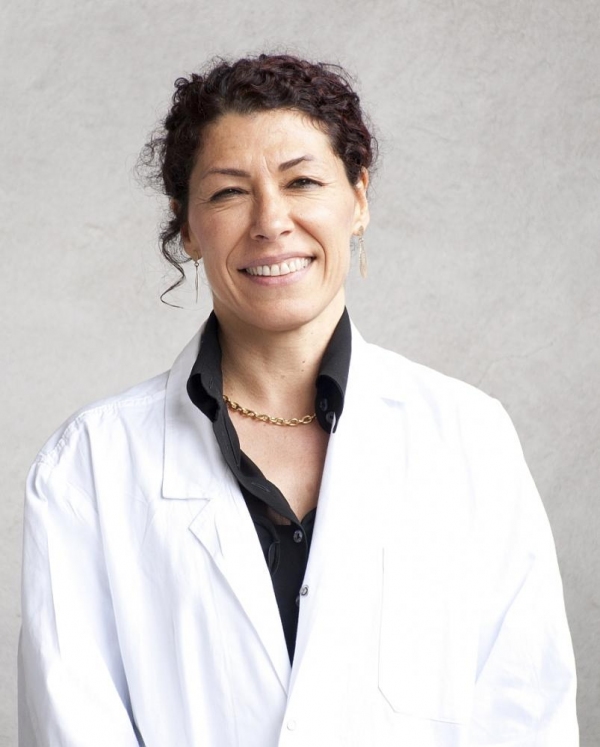
Flora Peyvandi
Medicine - Immunology and Allergology

Nicola Montano
Medicine and Metabolic Disease
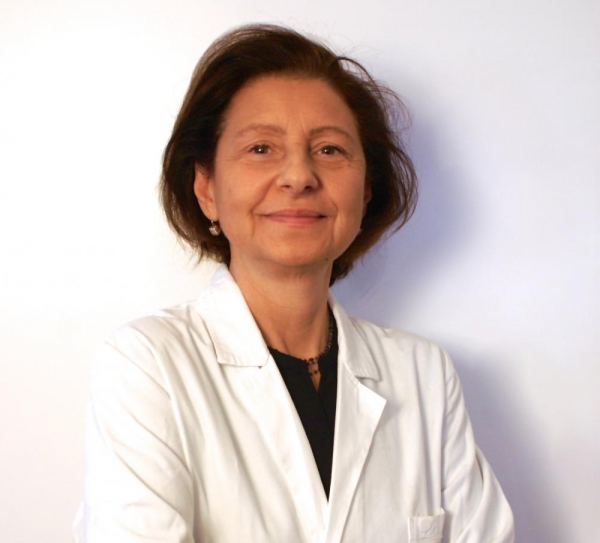
Anna Ludovica Fracanzani
Transfusion Medicine
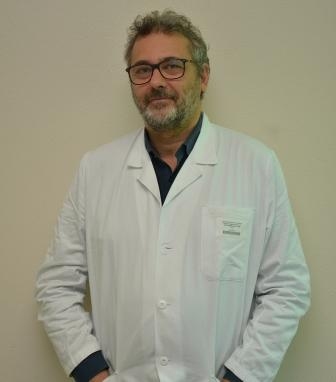
Daniele Prati
Neonatology and Neonatal Intensive Care Unit

Monica Fumagalli
Clinical Pathology
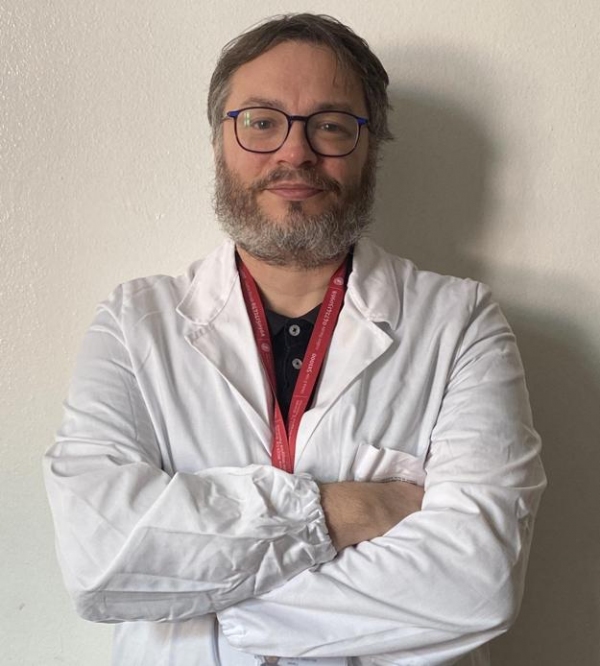
Matteo Vidali
Pediatrics - Immunoreumatology
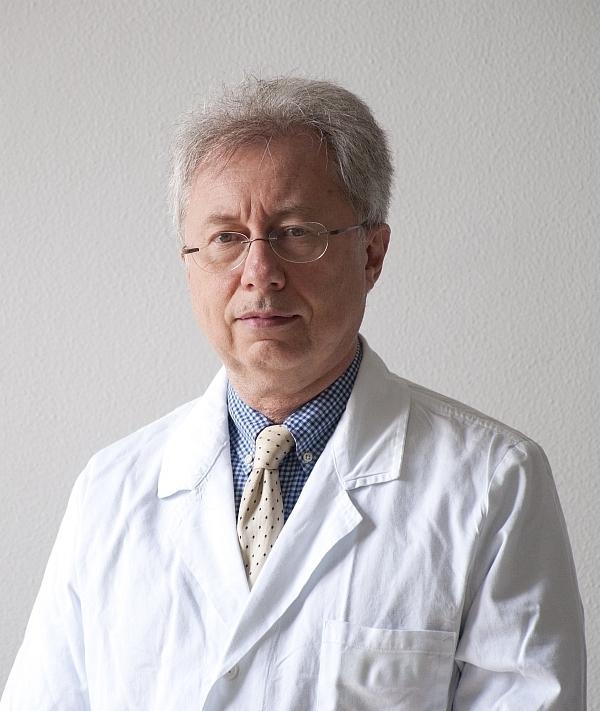
Carlo Virginio Agostoni
Pediatrics - Pneumoinfectiology

Carlo Virginio Agostoni




